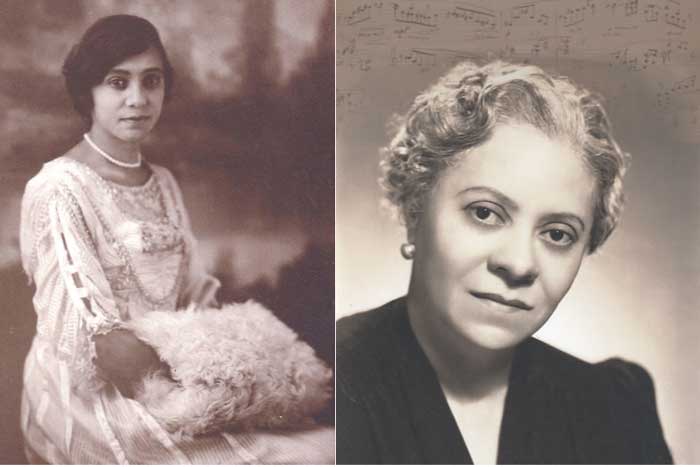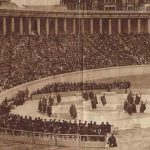Advocates of American classical music have often complained that there is a whole generation of mid-20th century symphonic composers whose work has been unjustly neglected. It includes figures like Roy Harris, Charles Ives, Walter Piston, Roger Sessions, and William Schuman, to name a few who were active from roughly 1930 to 1960 and who now rarely turn up on orchestra subscription programs.
Such a list could also include the name Florence Price. In 1933, Price became the first African-American woman to have her music performed by a major U.S. orchestra, when the Chicago Symphony Orchestra performed her Symphony in E minor. But after her death in 1952, her modest renown faded.
Yet Price is now gaining fresh attention. When the New Jersey Symphony performed Price’s Piano Concerto in D minor on Nov. 29, it was likely one of the first-ever New York-area performances of her symphonic music (Carnegie Hall has hosted 10 performances of her music since 1939, mostly of songs and spiritual arrangements). Next month, a recording of Price’s Symphonies Nos. 1 and 4 is due out on Naxos from the Fort Smith Symphony, led by John Jeter.
“I guess you would call it correcting a musicological wrong,” said Robert Thompson, the president of G. Schirmer. The music publisher last month acquired the global performance rights to her catalog. “When I just started to discover her music, I was like, ‘Oh my gosh, Americans have missed out on this incredible, singular voice of modern American classical music.’ She was a prominent symphonist and as best as I could ascertain, because she was African-American and female, the path wasn’t open to her.”
A Price Catalog Takes Shape
Schirmer’s editorial team has so far identified about 250 pieces by Price, as it combs scholarly sources including the University of Arkansas, the Free Library of Philadelphia, and A-R Editions, which looked after a number of her large-scale works. A search by the U.S. Copyright Department is also being completed. Though Schirmer in fact published a few of Price’s works during her lifetime, the majority of scores were scattered owing to the circumstances of her life and death.
In a new article for the Wall Street Journal, I summarize Price’s back-story:
Born in 1887 to a middle-class family in Little Rock, Ark., Price received musical training from her mother, a piano teacher. At age 16, she entered the New England Conservatory, where she studied piano and organ. After returning to Little Rock, she was denied admittance to the Arkansas State Music Teachers Association because of her race. Settling with her family in Chicago, Price made connections with leading figures in the black intelligentsia, including the writer Langston Hughes. She won multiple prizes for black musicians, wrote radio jingles and arranged spirituals, which both Anderson and the soprano Leontyne Price presented at Carnegie Hall. But though the composer’s musical style had broad appeal and craftsmanship, she also encountered resistance.
A turning point came in 2009, when 19 boxes of Price’s manuscripts, audiotapes and personal papers were discovered in an abandoned house near Chicago. Among the scores included in the trove were her Violin Concertos Nos. 1 and 2, which are the subject of a recording by violinist Er-Gene Kahng, conductor Ryan Cockerham and the Janáček Philharmonic. Here is the second movement, which shows off Price’s considerable melodic gifts:
Another recent release features baritone Thomas Hampson and pianist Kuang-Hao Huang presenting two of Price’s settings of Langston Hughes poems: “Songs to the Dark Virgin,” and “My Dream.”
It’s important to note that interest in Price is not entirely new. The Apollo Chamber Players, New Black Music Repertory Ensemble and the pianist Lara Downes are among those to have recorded her music in the past. Here is Downes performing Fantasie negre.
Price’s music still may be a hard sell for orchestra marketers, cautious about selling tickets for a still little-known name. But David Flachs, Schirmer’s Director of Publishing Administration, says there has been “significant interest” from performers and those interested in editing her works. “The most important thing is for us is to be able to facilitate the performance of her works,” he says, “and we are lucky in the interest we are seeing.”
For more on Price’s First Symphony, conductor Weilerstein gives an engaging introduction in this podcast:








Leave a Reply